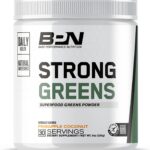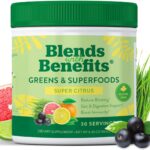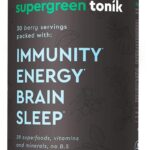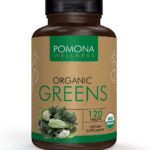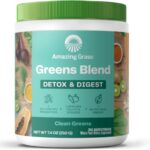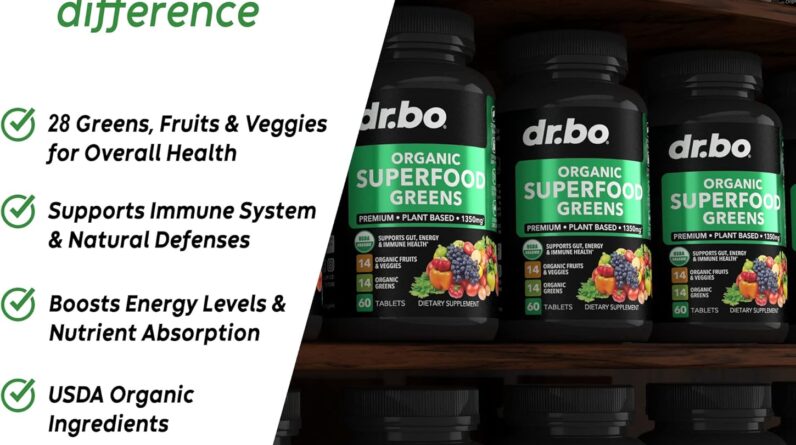
Disclaimer: This post may contain affiliate links. As an Amazon Associate, we earn from qualifying purchases.
You’ve probably heard the saying, ‘You are what you eat.’ And it’s true – the food we consume plays a vital role in our overall health and well-being. But understanding the difference between a nutrient vs nutrition is key to achieving a balanced diet and optimizing your body’s performance.
Nutrients are the essential substances found in food that are necessary for growth and optimal functioning. They include vitamins, minerals, proteins, and carbohydrates, all of which are crucial for maintaining a healthy body.
On the other hand, nutrition refers to the process of consuming the right types of nutrients over time to support growth and well-being. Nutrient vs nutrition is about understanding your specific dietary needs and making informed choices to ensure you’re getting the right balance of nutrients.
In this insightful guide, we’ll explore the distinction differences between a nutrient vs nutrition, delve into the functions of different nutrients, and highlight the importance of following dietary guidelines. We’ll also discuss how to understand your individual nutritional needs and provide practical tips for achieving a balanced diet.
So, if you’re looking to master the art of nourishing your body, read on to discover the secrets to a healthier, more vibrant you.
What are Nutrients?
Now let’s dive into the world of nutrients and discover what they really are.
Nutrients are the essential substances that our bodies need to function properly. They are found in the food we eat and are responsible for providing energy, supporting growth, and maintaining overall health.
There are six main classes of nutrients: carbohydrates, lipids, proteins, water, vitamins, and minerals.
Carbohydrates are our body’s main source of energy and can be found in foods like bread, rice, and pasta.
Lipids, or fats, provide stored energy, help absorb certain vitamins, and play a role in maintaining healthy cell membranes.
Proteins are important for tissue repair, immune function, and the production of enzymes and hormones.
Water is often overlooked as a nutrient, but it is essential for our bodies to function properly. It helps transport nutrients, regulate body temperature, and remove waste.
Vitamins and minerals are needed in smaller amounts but are still vital for various bodily functions. Vitamins regulate processes like metabolism and promote normal body system functions, while minerals are involved in cellular function and make up body tissues.
Understanding what nutrients are and how they function in our bodies is a key step towards achieving a balanced and healthy diet. By ensuring we consume a variety of foods that provide all the necessary nutrients, we can support our overall health and well-being.
Macronutrients vs Micronutrients
Contrary to popular belief, not all nutrients are created equal. When it comes to the nutritional value of our food, we can categorize nutrients into two main groups: macronutrients and micronutrients.
Macronutrients are the nutrients that our bodies need in large amounts to function properly. They include carbohydrates, lipids (or fats), and proteins. Carbohydrates are our body’s main source of energy, while lipids provide stored energy and help regulate bodily functions. Proteins are essential for tissue formation, enzyme production, and a healthy immune system.
On the other hand, micronutrients are the nutrients that our bodies need in smaller amounts. They include vitamins and minerals. Vitamins play a crucial role in regulating body processes and promoting normal bodily functions. Minerals, on the other hand, are necessary for proper cellular function and make up body tissue.
To help you visualize the difference between macronutrients and micronutrients, here is a table:
| Category | Macronutrients | Micronutrients |
|---|---|---|
| Definition | Nutrients required in large amounts for energy and growth (proteins, fats, and carbohydrates). | Nutrients required in smaller amounts but are essential for various body functions (vitamins and minerals). |
| Examples | Proteins (meat, beans), Carbohydrates (rice, pasta), Fats (oils, butter). | Vitamins (A, B, C, D, E, K), Minerals (iron, calcium, potassium). |
| Function | Provide energy, help in tissue growth and repair, regulate bodily functions. | Support immune function, bone health, and cell production, assist in energy production. |
Remember, both macronutrients and micronutrients are essential for a balanced diet. While macronutrients provide energy and structural constituents, micronutrients regulate body processes and promote overall health. So, make sure to include a variety of foods in your diet to get all the nutrients your body needs.
Functions of Nutrients
Macronutrients such as carbohydrates, lipids, and proteins play vital roles in providing energy, regulating bodily functions, and supporting tissue formation. They are the body’s main source of energy and are found in foods like grains, fruits, and vegetables. Lipids, also known as fats, provide stored energy, help insulate the body, and assist in the regulation of bodily functions. Proteins are necessary for tissue formation, enzyme production, and a healthy immune system. They are found in foods like meat, fish, beans, and dairy products.
On the other hand, micronutrients like vitamins and minerals are essential for promoting overall health and maintaining proper cellular function. They are required in smaller amounts but are equally important. Vitamins regulate body processes and promote normal body system functions. Minerals are necessary for proper cellular function and make up body tissue. They assist in enzyme function and play essential roles in the body.
It is important to consume a balanced diet that provides an adequate amount of both macronutrients and micronutrients to support overall health and well-being.
Importance of Dietary Guidelines
The Dietary Guidelines for Americans serve as a roadmap to healthy eating, guiding you towards a nourishing and vibrant lifestyle. These guidelines are based on extensive research and aim to promote better eating habits to prevent chronic diseases. They are published every 5 years by the U.S. Department of Health and Human Services and the U.S. Department of Agriculture.
Following the guidelines is important because they provide evidence-based recommendations on the types and amounts of food to consume for optimal health. They take into account various factors such as age, sex, and activity level to provide personalized advice. By following these guidelines, you can ensure that you’re getting the right balance of nutrients in your diet.
The guidelines also emphasize the importance of consuming a variety of nutrient-dense foods. This means focusing on whole grains, lean proteins, fruits, vegetables, and low-fat dairy products, while limiting the intake of added sugars, saturated fats, and sodium. By making these choices, you can meet your nutritional needs while reducing the risk of chronic diseases like heart disease, obesity, and diabetes.
The Dietary Guidelines for Americans are an essential tool for promoting good nutrition and overall health. By following these guidelines, you can make informed choices about your diet and improve your well-being. Remember, a balanced diet is key to achieving a nourishing and vibrant lifestyle.
Understanding Individual Nutritional Needs
Discovering and understanding your unique nutritional needs is key to optimizing your health and well-being. Each individual has different dietary requirements based on factors such as age, gender, activity level, and overall health. By tailoring your diet to meet these specific needs, you can ensure that you’re getting the right balance of nutrients to support your body’s functions.
To determine your nutritional needs, it’s important to consult with a healthcare professional or registered dietitian who can assess your individual circumstances and provide personalized recommendations. They’ll take into account factors such as your current health status, any underlying medical conditions, and dietary preferences.
Nutritional needs can vary greatly from person to person. For example, athletes may require more carbohydrates and protein to support their increased energy expenditure and muscle repair. Pregnant women have increased nutrient needs to support the growth and development of their baby. Older adults may have different nutrient requirements due to changes in metabolism and nutrient absorption.
Understanding your individual nutritional needs allows you to make informed choices about the foods you consume. By focusing on nutrient-dense foods such as fruits, vegetables, lean proteins, whole grains, and healthy fats, you can ensure that you’re providing your body with the necessary vitamins, minerals, carbohydrates, proteins, and fats it needs to function optimally.
It’s important to remember that nutrition isn’t a one-size-fits-all approach. By taking the time to discover and understand your unique nutrient vs nutrition needs, you can take control of your health and well-being and make choices that support your long-term vitality.
Frequently Asked Questions
How are nutrients measured and listed on food packaging?
On food packaging, nutrients are measured and listed using standardized units such as grams or milligrams. The amounts of nutrients present in the food are determined through laboratory testing and analysis.
What are some common sources of macronutrients and micronutrients?
Common sources of macronutrients include carbohydrates found in foods such as grains, fruits, and vegetables; proteins found in meat, fish, dairy, and legumes; and lipids found in oils, nuts, and seeds. Micronutrients can be obtained from a variety of foods, including fruits, vegetables, whole grains, and lean meats.
How do the Dietary Guidelines for Americans promote healthier eating habits?
The Dietary Guidelines for Americans promote healthier eating habits by providing evidence-based recommendations on nutrient intake, food groups, and portion sizes. They aim to prevent chronic diseases by encouraging a balanced diet and regular physical activity.
What factors contribute to individual nutritional needs?
Factors that contribute to individual nutritional needs include age, sex, activity level, and overall health. Other factors include genetics, metabolism, and specific dietary requirements. It is important to consider these factors when determining a person’s nutritional needs.
Can you provide examples of specific nutrient deficiencies and their effects on health?
Specific nutrient deficiencies can have detrimental effects on your health. For example, a lack of vitamin C can lead to scurvy, while a deficiency in iron can cause anemia. It’s important to ensure you’re getting all the necessary nutrients for optimal health.
Some Key Takeaways of Nutrient vs Nutrition
- Nutrients are specific substances in food that humans and animals need to live and grow.
- Nutrition is the process of eating the right kinds of nutrients over time to support growth and stay healthy.
- Different people have different dietary needs, so nutrient vs nutrition is measured differently for each individual.
- Finding out if someone is getting the right nutrition involves examining their individual needs and diet over time.
Conclusion
Congratulations on completing this insightful guide on the subtle and not so subtle difference between a nutrient vs nutrition! You’ve learned about the importance of nutrients and how they contribute to our overall health and well-being.
By understanding the difference between macronutrients and micronutrients, you now have the knowledge to make informed choices about your diet.
Remember, the Dietary Guidelines for Americans are there to guide us towards healthier eating habits and prevent chronic diseases.
So, let’s embark on our journey towards a balanced diet, nourishing both our bodies and souls with the nutrients they need to flourish.
As an Amazon Associate, we earn from qualifying purchases.



